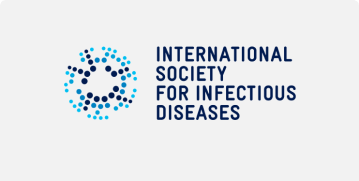Evidence of the effectiveness of BMJ Best Practice in clinical decision support and improving clinical care


Since BMJ Best Practice was launched in 2009, we have committed ourselves to a program of continuous evaluation and improvement. As a result, there is now extensive evidence of the effectiveness of BMJ Best Practice in clinical decision support and improving clinical care.
BMJ collected results from over 1,000 user surveys and results provide compelling evidence on the impact the Comorbidities tool has on patient care.

Study shows BMJ Best Practice supports delivery of evidence-based medicine
The results of a study on 200 doctors and residents at the Air Force Medical Center, Beijing, shows the impact of BMJ Best Practice on both self-directed learning and clinical care.
- 86.3% of doctors agreed that the information provided by BMJ Best Practice had enabled them to make an evidence-based diagnosis
- 80.4% of doctors had used BMJ Best Practice to help them provide evidence-based treatment, and
- 70.1% of doctors achieved a valued outcome of being able to share decision-making with patients and their carers.
![]()

Importance of taking into account comorbidities when managing patients, and how BMJ Best Practice can support healthcare professionals with this
The paper, written by leading specialists, outlines how the healthcare system needs to change so that it can provide a better service for patients. The clinical specialists outline how common comorbidities can interact with other conditions and the risks associated with these interactions.

The utility of e-learning and clinical decision support resources in improving the practice of healthcare professionals in infectious diseases
This evaluation showed how healthcare professionals used BMJ Best Practice to improve their clinical decision making at the point-of-care. In this evaluation healthcare professionals used BMJ Best Practice to improve care in differential diagnosis, management and follow up.

Accuracy and Effects of Clinical Decision Support Systems Integrated With BMJ Best Practice–Aided Diagnosis: Interrupted Time Series Study
The CDSS [clinical decision support systems] integrated with BMJ Best Practice improved the accuracy of clinicians’ diagnoses. Shorter confirmed diagnosis times and hospitalization days were also found to be associated with CDSS implementation in retrospective real-world studies.

Although I have knowledge in various respiratory medicine topics, I still refer to them on BMJ Best Practice. Most of the time it helps confirms whether my practice is correct and provides examples of practical things to do in each situation with corrective actions you should take.” Read more
Dr Nino Kiknadze: Primary care physician at the Aversi Clinic Diagnostic Centre in Tbilisi, Georgia
The perspective of physicians on the value of online clinical decision support
This evaluation showed that physicians saw the most value in BMJ Best Practice in helping them to improve their practice. They most appreciated clinically relevant content that was based on their needs, such as practical areas of history taking, diagnosis, differential diagnosis, investigation, management, and referral.

The BMJ Clinical Decision Support Initiative: Online training to detect and diagnose infectious diseases
This paper shows how BMJ Best Practice was used to support healthcare professional education in infectious diseases. Analysis of use of the resource suggests that healthcare professionals most appreciated the practical and actionable content on diagnosis and management.

Evaluating online diagnostic decision support tools for the clinical setting
This study examined 11 diagnostic decision support tools at the point of care, using an evaluation instrument that included 6 categories: general information, content, quality control, search, clinical results and other features. BMJ Best Practice ranked highest overall in the 6 clinical case scenarios used.

Education and Support for Healthcare Professionals to Prevent Future Pandemics: Report of a Conference Workshop
This paper shows BMJ Best Practice’s role in programs to strengthen health systems. Outcome drivers include the provision of content in the appropriate languages, overcoming technology barriers, linking the resources to CPD programs or existing curricula, strategic engagement of different types of healthcare professionals, and due consideration to sustainability and cost-effectiveness.

Evidence-Based Practice Point-of-Care Resources: A Quantitative Evaluation of Quality, Rigor, and Content.
This study evaluated the quality, rigor and content of evidence-based Practice Point-of-Care Resources. It found that BMJ Best Practice was in the upper quartile of EBP point-of-care providers. BMJ Best Practice achieved maximum scores for authorship, peer review, transparency and independence. It also achieved maximum scores for literature search/surveillance, method of critical appraisal and type of evidence used.

Providing Doctors With High-Quality Information: An Updated Evaluation of Web-Based Point-of-Care Information Summaries
This study looked at web-based point-of-care information summaries. BMJ Best Practice received the maximum scores for editorial quality, evidence-based methodology, authorship, reviewing, updating, transparency of conflicts of interest and independence. BMJ Best Practice also received maximum scores for literature search/literature surveillance, critical appraisal, formal grading of evidence and citation of expert opinion.

I tested the list of comorbidities detailed on BMJ Best Practice Comorbidities against some of my patients on the ward. In doing so I was able to conclude that the list of comorbidities was highly appropriate and very well crafted. The list selected both the most prevalent and challenging comorbidities in terms of drug interactions for acute and pre-existing conditions.” Read more
Dr Duncan Forsyth, Consultant Geriatrician at Cambridge University Hospital’s, Addenbrooke’s Hospital.